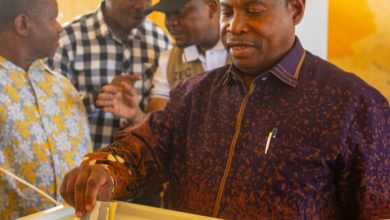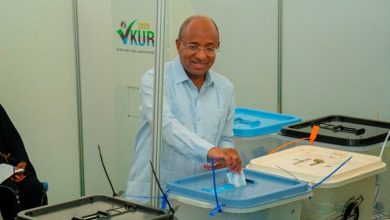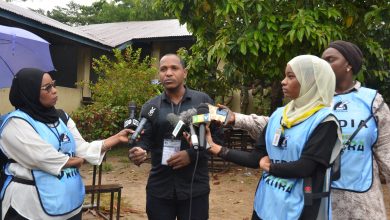How ‘Smart Class’ Technology is revolutionising education in Zanzibar

ZANZIBAR: A wave of technological innovation is reshaping the education system in Zanzibar, as the introduction of “Smart Class” learning begins to transform teaching and student performance in public schools.
The initiative, supported by President Dr Hussein Ali Mwinyi, is part of a broader government strategy to modernise education through increased budgetary support and digital tools.
At Tumekuja Secondary School, the only school in Zanzibar currently equipped with a fully operational smart classroom, students and teachers alike are witnessing a revolution.
The Smart Class setup enables one teacher to reach students across multiple classes using digital platforms, addressing teacher shortages while improving learning outcomes.
“Technology is helping us solve the problem of teacher scarcity,” says headteacher Mr Suleiman Salum Abdallah.
“With Smart Class, one qualified teacher can instruct several classes simultaneously. We’ve also been able to complete the syllabus on time and are targeting to eliminate Division Three and zero performance completely this year.”
Two students, Sabrina Hassan and Mohamed Habibu, shared how the smart class has made learning more interactive and easier to understand.
“It’s more engaging. We can see and hear lessons clearly and we’re more confident we’ll perform better in our final exams,” said Sabrina.
Speaking to journalists in Mazizini, the Permanent Secretary of the Ministry of Education and Vocational Training, Mr Khamis Abdallah Said, credited the sweeping reforms to the rapid growth of the education budget under President Mwinyi’s administration.
The ministry’s allocation grew from 265bn/- in 2023 to 860bn/- in 2025, enabling large-scale investments in infrastructure and learning resources.
ALSO READ: Zanzibar seeks education hub status in Africa
“This increased funding has allowed the construction of 35 new multi-storey schools, and the distribution of more than 3,000 computers,” Mr Khamis said.
“We’re also planning to build another 25 schools this year, especially in high-population areas like the Urban West Region.”
So far, 80 out of Zanzibar’s 600 public schools have received at least some ICT equipment. By the end of 2025, the government expects to install smart classroom systems in at least 20 more schools, with plans to purchase an additional 20 smart class setups in the 2025–2026 budget cycle.
“Technology is key to solving the shortage of qualified teachers,” he added.
“Take math, for instance. With smart classrooms, one math teacher can serve multiple schools at once.” He also gave special thanks to President Mwinyi for his bold commitment to the education sector.
“The President has been visionary, investing heavily and providing the support needed to transform our schools.” Zanzibar is now seeing real academic improvement as a result of the reforms.
According to ministry data, the pass rate for Form Six students has reached 99.8 per cent in 2025. Absenteeism among students has dropped significantly, thanks in part to modern classroom environments and better school furniture, tables and chairs now matching university standards.
“We’ve moved away from the dusty chalkboards and provided modern desks,” said Mr Khamis. “When students learn in a clean, well-equipped classroom, they’re more likely to attend regularly.” At the university level, support has also expanded.
Executive Director of the Zanzibar Higher Education Loans Board, Mr Umrati Suleiman Mohamed, said the ministry’s expanded budget has enabled the loans board’s allocation to grow from 25bn/- last year to 35bn/- this year—allowing more students to pursue higher education. Tumekuja Secondary School has emerged as a model for the future of education in Zanzibar.
ALSO READ: IIT Madras Zanzibar set to be hub of education
The school now boasts modern science laboratories equipped with projectors and computers, enhancing both theoretical and practical learning.
“This school is being called a ‘5-star school’ by many,” said headteacher Mr Abdallah.
“We are proud to have the only smart class in Zanzibar and we’re even partnering with schools in mainland Tanzania to exchange teaching experiences online.”
The school plans to reward outstanding teachers with laptops and bicycles to motivate further innovation and performance. However, challenges remain. The main obstacle now is power reliability. Frequent electricity outages interrupt smart class sessions.
To address this, the school has submitted a proposal for solar panels and the Ministry of Education has pledged support. In the long term, the school aims for every student to be tech-savvy.
“We teach our students to use computers so they can be self-reliant even if they don’t get formal employment,” Mr. Abdallah said.
“With the support we’ve received under President Mwinyi’s leadership, we believe Zanzibar’s education sector is heading in the right direction.





